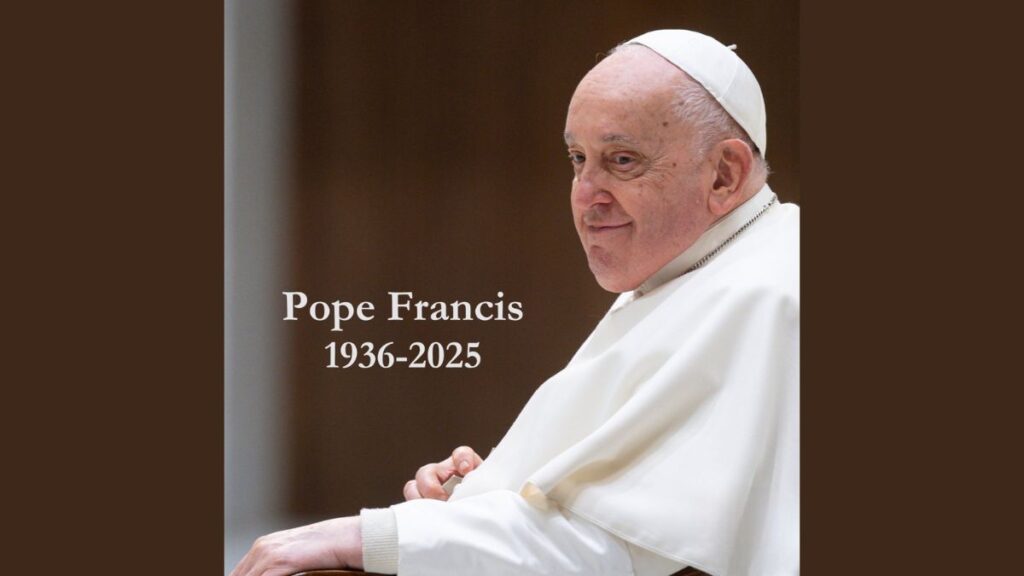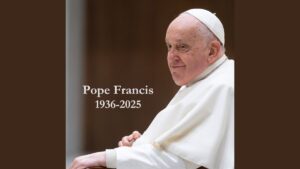Pope Francis Dies at 88 on Easter Monday: A Legacy of Compassion, Reform, and Global Peace

VATICAN CITY – April 21, 2025: Pope Francis, the first Latin American and one of the most reformist leaders of the Roman Catholic Church, passed away on Easter Monday at the age of 88. His death was confirmed by Cardinal Kevin Farrell, Camerlengo of the Holy Roman Church, who delivered the somber announcement from the Pope’s residence in Casa Santa Marta.
“At 7:35 this morning, the Bishop of Rome, Francis, returned to the house of the Father,” Cardinal Farrell stated. “His entire life was dedicated to the service of the Lord and His Church.”
The Director of the Holy See Press Office, Matteo Bruni, confirmed that Pope Francis’ mortal remains are likely to be transferred to St. Peter’s Basilica on Wednesday, April 23, for public veneration. Funeral arrangements will follow after the first Congregation of Cardinals.
The Pope had been battling deteriorating health since February 14, when he was hospitalized with bronchitis. On February 18, doctors diagnosed him with bilateral pneumonia. After a 38-day hospital stay, he returned to his Vatican residence to continue recovery.
Despite his illness, Francis made a surprise public appearance on Easter Sunday, riding through St. Peter’s Square in the popemobile and offering a message of peace, including a plea for a ceasefire in Gaza. His sudden passing a day later has sent shockwaves through the Catholic world and beyond.
World leaders mourned the loss with heartfelt tributes. Indian Prime Minister Narendra Modi expressed, “Pope Francis will always be remembered as a beacon of compassion, humility, and spiritual courage by millions across the world… His affection for the people of India will always be cherished.”
U.S. President Donald Trump, Russian President Vladimir Putin, European Commission President Ursula von der Leyen, and Ukraine’s Volodymyr Zelenskyy were among the many dignitaries who honored the late pontiff. East Timor President Jose Ramos-Horta praised him for leaving “a profound legacy of humanity, justice, and human fraternity.”
Pope Francis, born Jorge Mario Bergoglio in Argentina, was elected as the 266th pope on March 13, 2013. From day one, he rejected the trappings of power, opting to live in the communal Casa Santa Marta rather than the Apostolic Palace. Known for his simplicity, he promoted transparency, interfaith dialogue, and care for the marginalized—especially migrants and the poor.
His 12-year papacy was marked by efforts to reform the Vatican, improve financial accountability, and elevate the role of women within Church hierarchy. However, his tenure also faced criticism from both conservative and progressive factions.
Earlier this year, he approved a revised liturgical guide for papal funerals, emphasizing simplicity and faith in Christ’s resurrection. Archbishop Diego Ravelli noted that Pope Francis wanted to be remembered as a pastor, not as a worldly figure of power.
Francis’ declining health had roots in his youth. At age 21, he underwent lung surgery after a severe infection and suffered frequent respiratory issues in later life. He canceled a 2023 trip to the UAE due to influenza and lung inflammation.
During his papacy, Pope Francis became a global icon for peace, human dignity, and inclusion. He made numerous international visits, including a notable trip to East Timor in 2024. He appointed nearly 80% of the current cardinal electors, paving the way for a potentially progressive successor.
A planned sainthood ceremony for Carlo Acutis on April 27 has been postponed.
The Catholic world now prepares to bid farewell to a pontiff who sought to reshape the Church into a more humble, inclusive, and compassionate institution. His memory, many say, will remain eternal.







